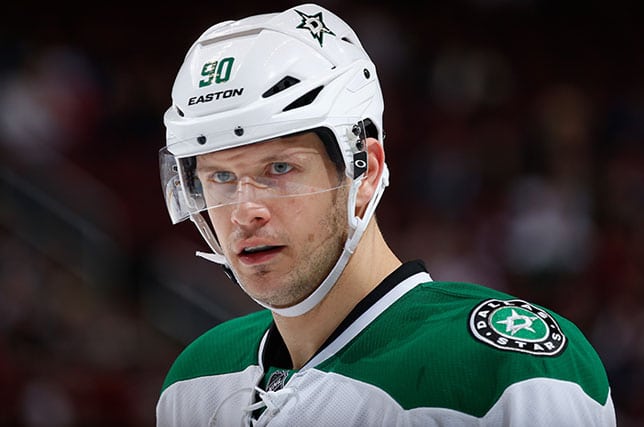
Why Jason Spezza's contract extension was horrible timing by Dallas
The Dallas' Stars decision to extend Jason Spezza for four years and $30 million was a mistake just 20 games into his tenure with the team.
 Why Jason Spezza's contract extension was horrible timing by Dallas
Why Jason Spezza's contract extension was horrible timing by DallasEverything about the Dallas Stars' season was a head scratcher leading up to Friday, so the announcement of Jason Spezza's four-year, $30-million contract extension is fitting.
Jason Spezza was a good get for the Dallas Stars in a summer trade with Ottawa that didn't cost GM Jim Nill an arm and a leg. Spezza, 31, still had plenty left in the tank. He remained a point-per-game player, give or take, he was excited to play in a less hockey-mad market and there was a solid chance he would flourish as Dallas' No. 2 center behind Tyler Seguin.
Spezza's short stay as a Dallas Star has delivered on expectations. He's tallied 18 points in 20 games, racking up assists on the power play. He hasn't been a world beater in his own zone, but Spezza was never mistaken for Patrice Bergeron to begin with.
Note the term "short stay," however. The man is 20 games into his Dallas Stars career. Why on Earth would this team sign him to a four-year extension now? The reasons not to stick out like a mason jar full of sore thumbs.
For one, there's the "prove it" element, not for Spezza's talent and production, but for his health. The last several seasons haven't been kind to his body. He tore his MCL in 2010, lost 15 games to a shoulder injury in 2011 and a serious back injury kept him off the ice almost the entire 2012-13 campaign. He "only" missed seven games in a healthy 2013-14 with Ottawa. Why, then, would the Stars invest four years, with a no-trade clause, in Spezza before seeing him get through even half a season healthy? It's a more exaggerated version of the mistake the Toronto Maple Leafs made with Joffrey Lupul's hefty extension after a 2011-12 breakout in which he averaged better than a point per game but missed 16 contests due to injury.
Another strike against the timing of Spezza's contract: the cap hit. If he was set to earn, say, $6 million a season, Dallas jumping the gun could've been justifiable, as he's a pending unrestricted free agent and it would be a worthy gamble to lock him up at a relative discount. But at $7.5 million, the Stars have paid through the nose after seeing Spezza in their lineup for just 20 games. He got better than Paul Stastny money. The Stars haven't saved a cent by locking up Spezza early. And, given his health woes and the fact he's open about his affection for the city of Dallas, he didn't have oodles of leverage.
Lastly, there's the matter of Dallas struggling mightily in the standings. We can all agree this team is far better than it's shown us to date, that it can even still make noise in the West, but that doesn't mean the Stars haven't put themselves in a scary hole. They sit five points out of a playoff position, with a game in hand, after 20 games. That doesn't seem so bad – until you factor in that Dallas has already played 11 home games and lost nine of them. It has an uphill climb trying to right the ship with more away games than road games the rest of the season.
Which brings us back to Spezza. What if the Stars, who are really struggling on the defensive side of the game and desperate for blueline help, don't come out of their funk? What if they're hopelessly out of contention by March, when the trade deadline comes around? Wouldn't they want the option of cutting their losses and shopping a massive trading chip in Spezza, who would've been a UFA and the biggest fish for any contending team to land?
It's not to say that the Stars shouldn't keep Spezza, that they won't improve, and that he won't be an important part of a prosperous Western Conference run over the next few years. But why, oh why, did Dallas have to extend his contract now? Jim Nill has painted himself into corner and could regret the move if his team doesn't improve in a hurry.
Matt Larkin is an associate editor at The Hockey News and a regular contributor to the thn.com Post-To-Post blog. For more great profiles, news and views from the world of hockey, subscribe to The Hockey News magazine. Follow Matt Larkin on Twitter at @THNMattLarkin